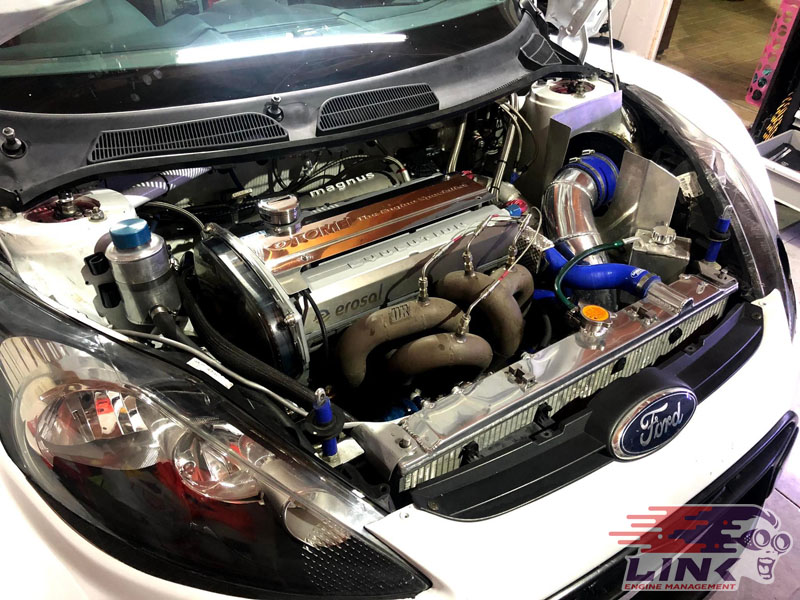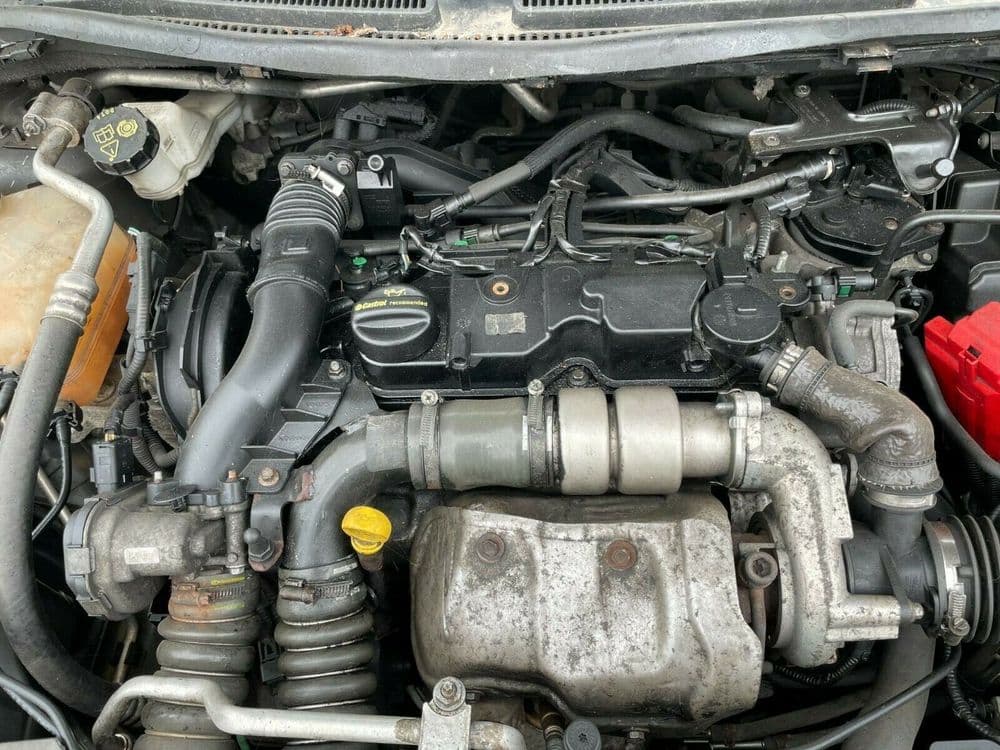Troubleshooting Ford Fiesta Engine Problems: What You Need to Know
Troubleshooting Ford Fiesta Engine Problems: What You Need to Know
Blog Article
The Future of Engines: Advancements Driving Lasting Power Solutions
As the vehicle market browses the critical transition towards sustainability, the future of engines is increasingly defined by groundbreaking innovations. Electric engine developments, together with appealing developments in hydrogen fuel cells and biofuels, are reshaping the landscape of power solutions.
Electric Engine Developments
The evolution of electrical engine advancements signifies a critical shift in the automobile and aerospace industries, driven by the urgent need for lasting choices to nonrenewable fuel sources. This shift is defined by considerable developments in battery technology, power electronic devices, and electrical motor style, which collectively enhance the performance and efficiency of electric engines.
Recent advancements have actually caused the development of lighter, more energy-dense batteries, such as lithium-silicon and solid-state batteries, which assure longer arrays and shorter charging times. In addition, enhancements in electric motor performance, such as using permanent magnets and progressed cooling systems, enable electrical engines to operate effectively under differing conditions. These improvements not only boost automobile performance yet likewise add to a reduction in general power intake.
Additionally, the assimilation of advanced software algorithms has actually optimized energy monitoring in electric automobiles, permitting regenerative braking and predictive charging techniques. As suppliers significantly embrace electric propulsion, the aerospace and auto sectors are experiencing a standard shift towards greener technologies. This evolution not only satisfies regulatory demands however likewise aligns with customer preferences for eco-friendly transportation solutions, solidifying electric engines as a keystone of future lasting movement.
Advancements in Biofuels
As the aerospace and vehicle industries increasingly focus on sustainable power resources, advancements in biofuels become a complementary remedy to electric engines. Biofuels, obtained from natural products such as crops, waste, and algae, provide an innovative method for decreasing greenhouse gas exhausts and reliance on fossil gas.
Current research study has actually concentrated on boosting the performance and sustainability of biofuel manufacturing. Second-generation biofuels make use of non-food feedstocks, minimizing competition with food supply and minimizing environmental effect. Developments in artificial biology have actually made it possible for the engineering of microorganisms to generate biofuels much more properly, leading to greater yields and lower manufacturing costs.
In addition, the advancement of drop-in biofuels enables for seamless integration right into existing framework, enabling a smoother change for industries typically based on fossil gas. ford fiesta engine. These fuels can be made use of in current engines without modifications, promoting their fostering across various fields
Investments in biofuel technology, together with helpful plans, are important to drive innovation and scalability. As the worldwide community seeks to combat environment modification, biofuels offer a pragmatic, prompt remedy that lines up with the overarching goal of sustainability in transport and aeronautics.
Hydrogen Fuel Cell Innovation
A growing number of firms and scientists are discovering hydrogen fuel cell technology as a sensible choice to standard power sources in transportation and energy systems. This innovation transforms chemical power from hydrogen into power with an electrochemical response, with water as the only by-product, making it an eco-friendly alternative.
The core of hydrogen gas cells is the fuel cell pile, where hydrogen particles are divided right into protons and electrons. The flow of electrons creates electricity, while protons relocate with a membrane to incorporate with oxygen from the air, creating water. This procedure results in high performance and low emissions, placing hydrogen fuel cells as a crucial player in the shift to sustainable power.
Substantial innovations have actually been made in enhancing the durability and performance of gas cells, together with minimizing prices with cutting-edge production methods. Furthermore, the advancement of hydrogen production techniques, such as electrolysis powered by renewable resource resources, enhances the sustainability of the general system. As facilities for hydrogen refueling expands and production approaches come to be more efficient, hydrogen fuel cell innovation holds fantastic assurance for decarbonizing different sectors, including durable transport and fixed power generation.
Hybrid Systems and Their Influence
Crossbreed systems stand for a substantial development in lasting engine innovation, combining conventional interior burning engines with electric propulsion to maximize energy performance and reduce emissions (ford fiesta engine). This double strategy permits lorries to use both source of power, allowing higher flexibility in power consumption and lowering reliance on nonrenewable fuel sources

In enhancement to environmental benefits, crossbreed systems provide customers a practical transition in the direction of fully electrical lorries. They relieve variety anxiety by integrating the benefit of fuel with the benefits of electric propulsion, making them an appealing option for a larger target market.
The Role of AI in Engine Layout
Leveraging advanced algorithms and click here for more artificial intelligence methods, the vehicle sector is increasingly integrating expert system (AI) into engine layout procedures. AI improves the effectiveness and performance of layout by analyzing large datasets to determine optimum arrangements and efficiency parameters. This capability allows engineers to mimic different operating problems and forecast engine actions under numerous circumstances, considerably decreasing the moment and expense related to traditional prototyping techniques.
Moreover, AI assists in the development of advanced materials and combustion processes customized for sustainability. By optimizing fuel efficiency and reducing emissions, AI-driven designs align with worldwide efforts focused on decreasing the carbon impact of auto engines. Machine discovering algorithms can additionally forecast upkeep demands, leading to boosted reliability and durability of engine parts.
Furthermore, AI contributes in the combination of electrification innovations, such as hybrid systems, where it can optimize battery monitoring and energy recovery processes. As the sector relocates towards more sustainable power solutions, the duty of AI in engine layout ends up being significantly important, driving innovation and enhancing the efficiency of future engines. Eventually, the cooperation in between AI and engine layout proclaims a brand-new age of smarter, cleaner, and more reliable automobile modern technologies.

Verdict
In conclusion, the future of engines is being formed by a merging of cutting-edge modern technologies that focus on sustainability. Electric engine innovations, biofuel growths, hydrogen gas cells, and crossbreed systems jointly contribute to a considerable reduction in emissions and environmental influence.
Electric engine advancements, along page with encouraging advancements in hydrogen gas cells and biofuels, are reshaping the landscape of power solutions. Additionally, improvements in electric motor performance, such as the usage of irreversible magnets and advanced cooling systems, make it possible for electric engines to run successfully under varying conditions. By optimizing gas performance and decreasing emissions, AI-driven styles align with global initiatives intended at reducing the carbon footprint of auto engines. As the industry relocates in the direction of even more sustainable power remedies, the role of AI in engine design comes to be progressively vital, driving advancement and enhancing the efficiency of future engines. Electric engine developments, biofuel growths, hydrogen fuel cells, and crossbreed systems collectively add to a significant reduction in discharges and directory environmental effect.
Report this page